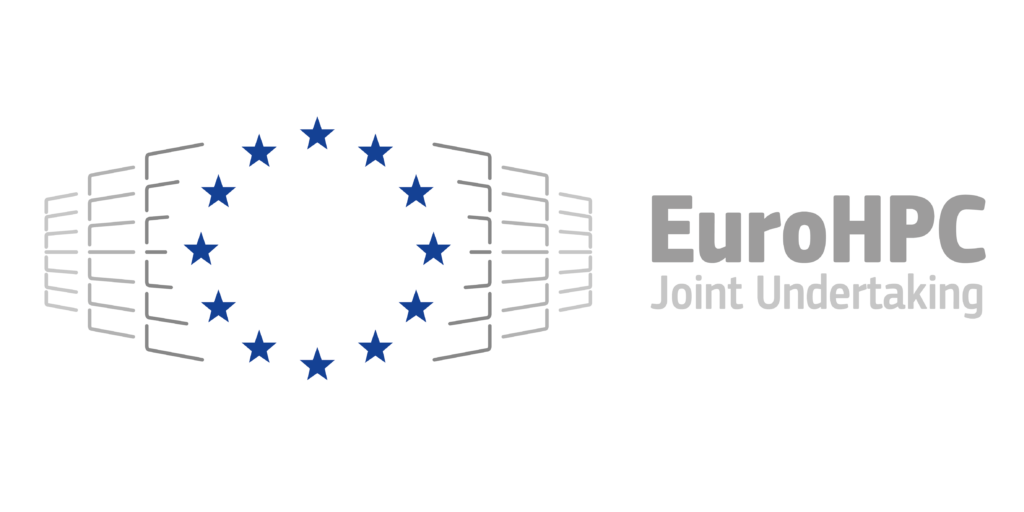On October 9 and 10, 2024, the European Processor Initiative organized and hosted its first EPI Forum in Barcelona, Spain.
The event was organized as a two-day conference, followed by an afternoon event organized by EUPEX project. More than 100 people attended the EPI Forum and participated in lively discussions, presentations and two panels.
The event was sponsored by six global technology providers: platinum sponsors included Arm, Eviden and NVIDIA, while AMD, Semidynamics and SiPearl were gold sponsors of the event.
After an introduction by Chairman of EPI Board, Eric Moncahlin, and a general overview of EPI given by project General Manager, Etienne Walter, the first day was opened by keynotes from notable speakers.
Director of BSC, Mateo Valero, spoke about the situation in Europe and the reasons for Buy versus Build when it comes to supercomputers, making a case for European sovereignty, and Stéphane Requena, CTO from GENCI, gave an insightful presentation about AI in Europe and infrastructure requirements, French ecosystem and GENCI’s work in the field.
The day continued with speeches from technology providers – Jean-Pierre Panziera from Eviden talked about HPC in the AI era, Eric Lalardie from Arm discussed Arm’s European activities and enabling European innovation, Daniele Piccarozzi from AMD presented his company’s solutions for HPC and AI, Philippe Notton, CEO of SiPearl, unveiled information about SiPearl’s Seine platform, while Roger Espasa, CEO of Semidynamics, gave a RISC-V-based perspective of his company’s All-in-One solutions for RISC-V AI.
The end of the first day was reserved for Arm and Rhea in high-end HPC, so EPI’s board member and SiPearl’s VP, Craig Prunty, gave an exhaustive presentation regarding key features of Rhea, GPP technology and exascale system for EPI. Following his view, Eric Monchalin introduced the end-day panel and panelists of the first day: Eric Lalardie, Jean-Pierre Panziera, Filippo Spiga from NVIDIA, Roger Espasa, Craig Prunty, Daniele Piccarozzi, Alexandra Kourfali from EuroHPC JU, and Etienne Walter. The group talked about the opportunities and risks in HPC ecosystem presented by the fact that innovation is driven with market demands which shifted towards cloud and AI, discussions about the importance of end-to-end co-design, costs of chip design, European sovereignty, and the ever-present need for sustainability and net-zero emissions.
The second day was opened by a keynote speaker from EuroHPC JU, Alenxandra Kourfali, who gave an interesting presentation on EuroHPC activities, chips initiatives, and the positioning of EPI in this environment. Her presentation was followed by NVIDIA’s take delivered by Rod Evans, who talked about the interesting concept of enabling development of AI in nations. The following segment was dedicated to RISC-V activities in EPI – and the EPI accelerator EPAC. Filippo Mantovani from BSC, EPI’s stream leader, gave an overview of EPAC and VEC, while Andrea Bocco from CEA and Tim Fischer from ETHZ talked about the variable extended precision accelerator for scientific computing applications and the Snitch core. David Snelling from Fujitsu gave a talk about Arm processor MONAKA in Fujitsu.
The day and the Forum closed with a panel on RISC-V future. It was moderated by Etienne Walter, EPI’s General Manager, and the panelists – Jean-Pierre Panziera, Daniele Gregori from E4, Manolis Marazakis from FORTH, Fabrizio Gagliardi from BSC, Alexandra Kourfalis Osman Unsal from BSC and Eric Monchalin, EPI’s Chairman of the Board – discussed about performance and scalability and how RISC-V compares to existing architectures like ARM, x86, etc., both now and in some predictions for the future. The panel also talked about the software ecosystem and whether the current one is mature enough to support large-scale HPC deployment on RISC-V. Panellists also offered their views on how the open-source nature of RISC-V would ensure standardization and avoid fragmentation in HPC implementations, ideas on cost and economic viability, energy efficiency and sustainability and IP issues – which relates to Europe’s strive for sovereignty.
The event was followed by EUPEX Forum presentations, which were open to all EPI Forum attendees to listen to free of charge.
All EPI Forum presentations are available in our repository here: https://www.european-processor-initiative.eu/dissemination-material/epi-forum-in-barcelona/, while highlight videos from presentations will be published on EPI YT channel here: https://www.youtube.com/@EuropeanProcessorInitiative.
Next year’s Forum will be held in Paris, stay tuned for more info!

